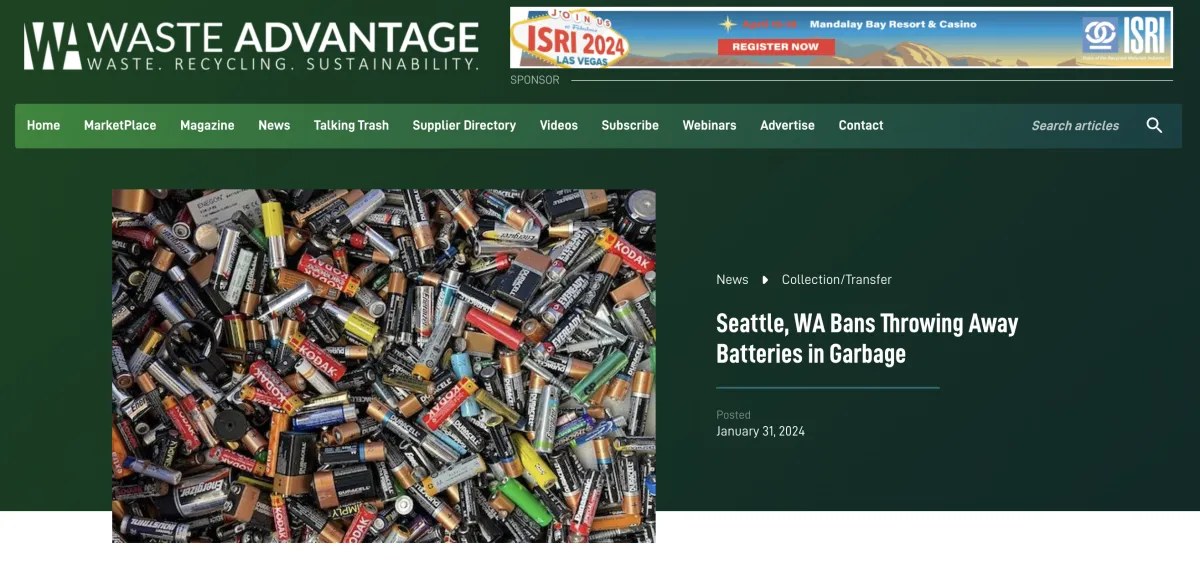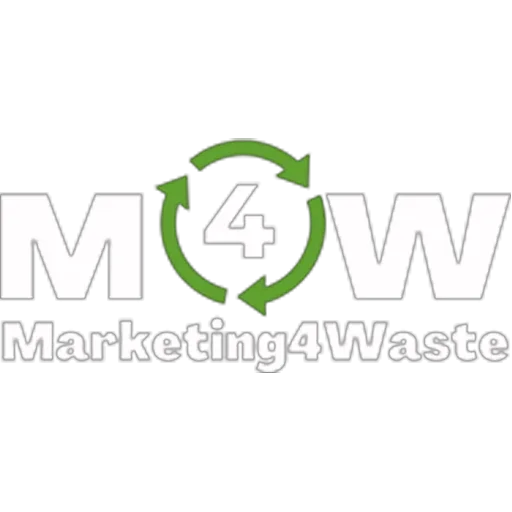Increase the Revenues of Your Waste Company With the Tips Shared in Our Blog Articles

Put The Batteries To Your Small Waste Company To Boost Your Results
“Seattle Public Utilities has banned all batteries and some electronics from being disposed of in the garbage due to fire risk.”
The reality is that the ban should be connected with the loss of useful materials that batteries have.
Indeed, the global consumption of AA and AAA batteries skyrockets.
It is projected to reach nearly 78 billion pieces by 2024.
The spotlight turns to the critical role you can play in harnessing this tide of used batteries.
This is not just about adhering to environmental standards; it’s about leading the charge in the circular economy, turning potential waste into valuable resources.
Imagine every used battery as a treasure trove of materials—zinc, manganese dioxide, steel—each with the potential to be reborn into new products.
The challenge of collecting and recycling these batteries, daunting though it may seem, is ripe with opportunity.
But where do you start?
How can you leverage the Extended Producer Responsibility (EPR) act, a principle embraced worldwide, to meet regulatory compliance and excel beyond it?
EPR is not just a responsibility; it’s an opportunity—a way for you to work hand in hand with producers in the lifecycle management of batteries, driving both environmental and economic benefits.
From establishing convenient collection points to investing in cutting-edge recycling technologies, from forging industry collaborations to developing markets for recycled materials, the path is laid out for you.
It’s time to engage in a deeper dialogue about your role in this ecosystem, to understand how you can capitalize on these opportunities, and to envision a future where your business is at the heart of a sustainable, circular economy.
Let’s dive into how you can turn this vision into reality, step by step, transforming challenges into opportunities for growth, innovation, and (why not?) environmental stewardship.
Let’s start!
Awareness and Collection Programs
Public Awareness: Launch campaigns to educate the public on the importance of battery recycling and the environmental risks associated with improper disposal. This could involve collaboration with environmental organizations, schools, local governments, and producers.
Collection Points: Establish and promote convenient collection points for used batteries at retailers, schools, community centers, and other public spaces. Partnerships with retailers and manufacturers can also incentivize return through discounts or loyalty points.
Recycling Technology and Infrastructure
Investment in Technology: Invest in advanced recycling technologies that efficiently recover valuable materials from batteries. This includes hydrometallurgical processes, pyrometallurgy, and direct recycling methods that minimize waste and energy consumption. I know, it could seem expensive, but think about long-term ROI.
Recycling Facilities: If you don’t want to invest, develop a partnership with specialized recycling facilities that can handle the specific materials in AA and AAA batteries. Don’t forget to ask them for a profit share on the material you’ll bring on.
Partnerships and Collaboration
Industry Collaboration: Work with battery manufacturers, consumer electronics companies, and stakeholders to develop standardized, environmentally friendly designs and recycling-friendly components. Encouraging the design of batteries that are easier to recycle can significantly improve recovery rates.
Landfill Owners: Seek collaboration with them. Indeed, you’ll help them reduce risks inside their facilities, avoiding fire risks that usually are under the lens of the authorities, causing the landfill to stop.
Market Development for Recycled Materials
Quality Assurance: Ensure that the materials recovered from batteries meet high-quality standards so they can be used in new products. This includes purifying metals and ensuring they are suitable for use in manufacturing. You can create a process that certifies the materials working with battery producers or laboratories.
Diverse Applications: Identify and develop markets for recycled materials. Zinc and manganese, for example, have applications in various industries, including electronics, metal alloying, and even agriculture as micronutrient fertilizers. Sometimes, exiting from your market can give you the best results.
Sustainability and Circular Economy Integration
Circular Economy Models: Promote business models that encourage using recycled materials in new batteries and other products, closing the loop and reducing the need for virgin materials. Educate producers (mainly their buyers) about the advantages of using recycled materials for their products and their company. I’m sure that you’ll catch their attention.
Sustainability Reporting: Report on the environmental impact of recycling programs, including waste reduction, conservation of natural resources, and greenhouse gas emissions reductions. This can seem more focused on something outside you, but it isn’t. It will enhance your potential client’s brand reputation, boosting their market share. Indeed, they can attract a side of their niche they were not considering. You should ask them for some of the profits you’ll help them generate.
Batteries could power your small waste business.
Put them in the right way, and turn on the power button.
Do you need any help?
Text us “Battery” at +1 (727) 307-2695 and we’ll be back to you.
All the best
Sam


© 2025 Marketing4waste - All Rights Reserved,
Marketing4Waste is a brand of MiM MarketingInterimManagers LLC
+1 801 804 5730

